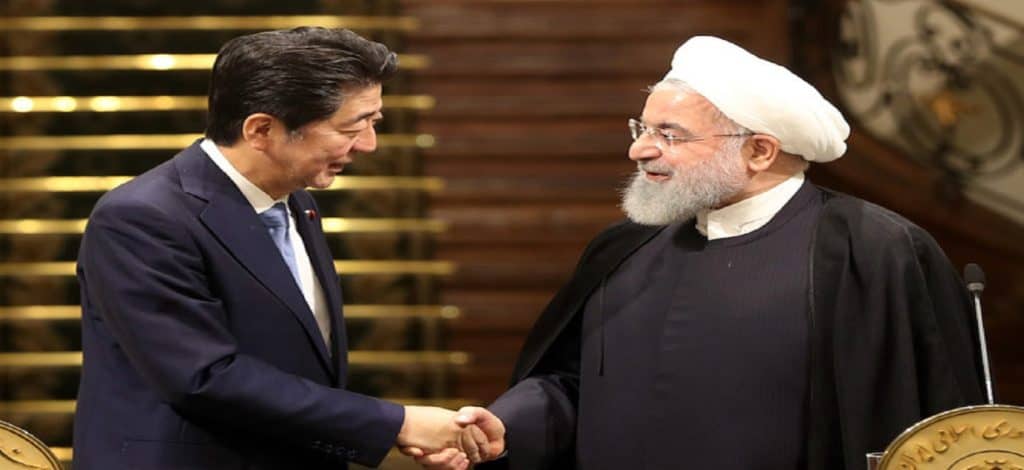By Denis Korkodinov
The visit of Japanese Prime Minister Shinzo Abe to Iran, made on June 12, 2019, demonstrates Tokyo’s intention to defend its policy towards the Ayatollah regime as a balanced method of countering Washington, primarily in the economic sector.
The main reason for the offers of mediation is oil. However, the leaders of countries offering their media services seem do not understand that Iran does not need intermediaries.
It is particularly noteworthy that the Iranian visit of the head of the Japanese government occurred almost immediately after Shinzo Abe met with US President Donald Trump. The symbolism of this meeting was in Japan’s desire to demonstrate to the international community its active participation in neutralizing the conflict between Washington and Tehran.
It is worth noting that Shinzo Abe was not the only mediator in the Iranian-American confrontation. Thus, the pioneer in the implementation of the mediation mission was Heiko Maas, the German foreign minister, who also intends to establish warm relations with Iran due to the fact that European countries have a great need for Iranian “black gold”, despite the threats from the United States.
Because of the American sanctions, Asia and Europe were faced with a difficult choice: either continue to buy oil from the Ayatollah regime, but at the same time face the wrath of the White House administration, or continue to cooperate with the US, but experience an energy crisis due to the depletion of their own oil reserves. The leaders of the countries are aware of the fact that it is impossible to implement both options in the present conditions, so they are forced to maneuver by making regular visits to Iran and trying to smooth the sharp corners of the conflict between Washington and Tehran.
The American partners are aiming to restore the previous volume of trade with the Ayatollah regime. In addition, European and Asian markets are in one way or another connected with Iran’s business activity, breaking relations with which is absolutely impossible without negative consequences for its own economic climate. For this reason, an entire line of mediators has formed in the international community, trying to put the White House administration and the Iranian leadership at a common negotiating table.
Therefore, in such an intermediary mission there are big risks for the leaders of Europe and Asia, because, acting as guarantors, they must convince, on the one hand, the Ayatollahs that Washington will not attempt to use military force, and on the other side, the American “hawks” that Iran will not create nuclear weapons. In the event of a violation of one of the conditions, European and Asian mediators risk acting as the main culprits in the breakdown of the negotiation process.
Meanwhile, Iran has shown no need for intermediaries. In addition, he became even more committed to his revolutionary ideals associated with the antagonism of “American imperialism.” Under these conditions, the efforts of international mediators seeking to reconcile Washington and Tehran are doomed to failure, since the Ayatollah regime made it clear that the negotiation process with Donald Trump is possible only on Iranian terms.
(The opinions expressed in this article are solely those of the author and do not necessarily reflect the views of World Geostrategic Insights).
Image Credit: Arab News







